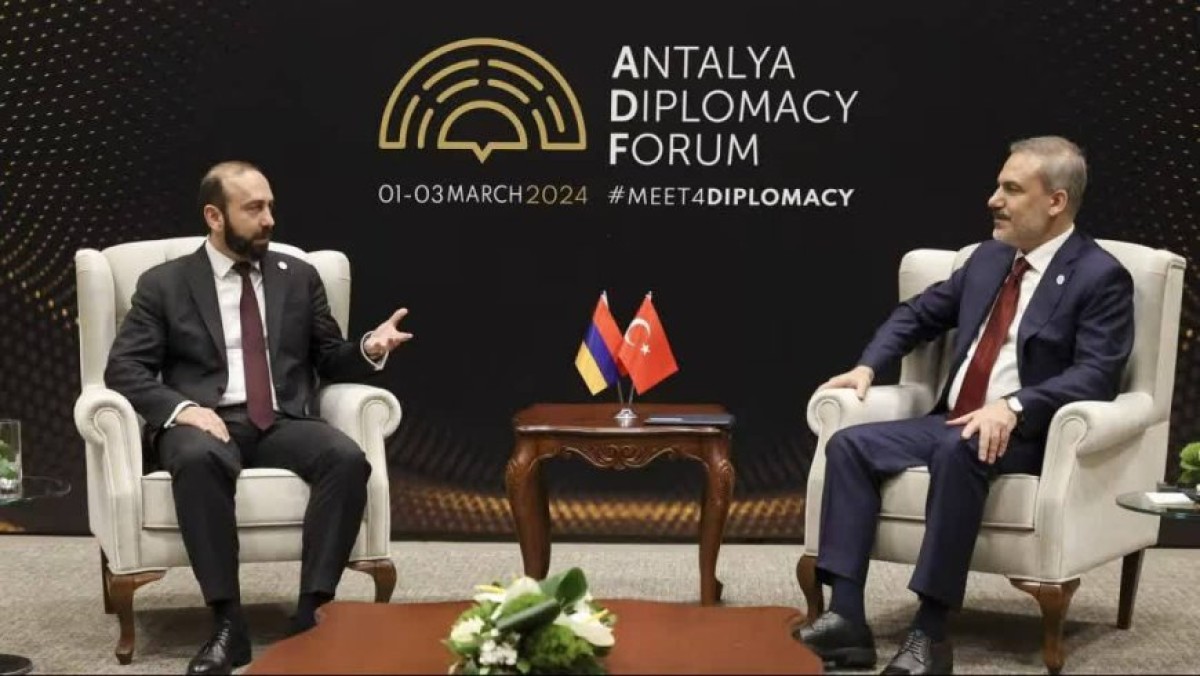 409
409
Navigating the Geopolitical Maze: Erdogan's Diplomatic Ballet in Antalya
Navigating the Geopolitical Maze: Erdogan's Diplomatic Ballet in Antalya
In the past few days, Turkey orchestrated a significant gathering at the regional level, playing host to a diverse array of delegations from numerous nations. Noteworthy figures, including 19 heads of state, 73 ministers, and 57 international representatives, graced the third Antalya Diplomacy Forum with their presence. This assembly unfolded against the backdrop of the escalating conflict in Gaza, underscoring the imperative for strategic dialogue and collaboration in the strife-ridden West Asian region.
By: A. Yeganeh
Against the backdrop of mounting economic challenges domestically, Ankara has undertaken a substantial expansion of its diplomatic relations. While simultaneously grappling with internal fiscal dilemmas, the nation is resolutely working to reinforce its economic resilience through the cultivation of robust international alliances. The multifaceted objectives that Turkey aims to achieve in convening the Antalya Forum are varied and warrant meticulous scrutiny.
Foremost among these objectives is the imperative to normalize relations with Armenia, an enduring effort fraught with historical animosities dating back to 2008. Turkey, assuming the role of a benevolent elder sibling within the Central Asian sphere, seeks to foster closer ties with Armenia as a strategic conduit to the broader Central Asian region. A potential reconciliation with Armenia holds the promise of expediting Turkey's ambitions to establish the so-called "Turan Corridor," thereby enhancing its geopolitical influence in the region. It is crucial to note, however, that the prospect of repairing ties between Turkey and Armenia must navigate the challenging waters of ongoing military hostilities between Yerevan and Baku. A potential avenue for conflict resolution may materialize through Turkey's mediating efforts to broker peace between Azerbaijan and Armenia, thereby promoting regional stability.
Furthermore, Turkey's diplomatic endeavors extend to Russo-Turkish relations, a complex interplay of economic entanglements and geopolitical maneuvering. Recent dialogues with Western powers culminated in Turkey securing authorization to sell F14 military aircraft from the United States while also formalizing Sweden's participation in NATO. These overtures, while cementing Turkey's ties with the Western bloc, carry nuanced implications for its relationship with Russia. Notably, Turkey's outreach to Russia, exemplified by President Erdogan's personal entreaties to Russian counterparts to participate in the Antalya Forum, underscores the nation's strategic imperative to preserve and enhance its burgeoning economic ties with Russia, which reached a record-breaking $65 billion last year.
President Erdogan's diplomatic tightrope extends to the conflict between Russia and Ukraine, where Turkey positions itself as a prospective mediator in the effort to quell hostilities and broker a lasting peace. Leveraging its intermediary role, Turkey's pragmatic diplomacy seeks to navigate the complexities of the Russo-Ukrainian conflict, burnishing its credentials as a peacemaker on the global stage. The Antalya Forum emerges as a pivotal juncture for Erdogan to showcase Turkey's mediating prowess and bolster its international standing.
Amidst these geopolitical maneuvers, Turkey confronts a pressing imperative to address its domestic economic challenges, epitomized by soaring inflation rates and fiscal turbulence. The Antalya Forum, with its gathering of 19 presidents, offers a platform for Turkey to leverage its economic capacities and solicit international support in navigating its economic challenges. Employing economic diplomacy as a strategic tool, Turkey seeks to harness the collective economic might of diverse countries to revitalize its economic woes.
In summation, the Antalya Forum stands as a testament to Turkey's diplomatic acumen and strategic foresight in navigating the complex terrain of international relations. As Turkey grapples with the exigencies of its ailing domestic economy, the nation seeks to bolster its diplomatic standing through deft economic diplomacy. Yet, in an era of geopolitical flux and shifting alliances, the enduring question remains: Can Turkey's pragmatic diplomacy weather the storm of geopolitical upheaval and carve out a niche as a pivotal player straddling the East-West divide?
 409
409
Comment
Post a comment for this article